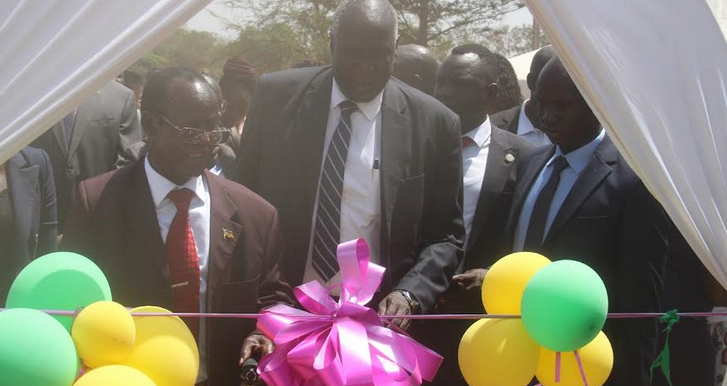The National Chamber of Commerce has accused the Juba Electricity Distribution Company (JEDCO) of charging excessive power tariffs that have frustrated the growth of local manufacturing.
Speaking during the third Made in South Sudan Trade Fair in Juba on Tuesday, Ladu Lukak, the acting chairperson of the Chamber said the cost of electricity in South Sudan is the highest in the world.
“Some of us in the private sector can manufacture products like cooking oil, flour, soap, biscuits, handkerchiefs, etc. here but we have a problem with electricity. This electricity has now become like the dollar because the most expensive electricity tariffs are in South Sudan and yet no one is questioning the person supplying the electricity,” he charged, to a standing ovation. “We know that the government provided oil money for this electricity so why should it be left to that person to overcharge us? When you buy electricity worth SSP 10,000, they make deductions of 2,500 in charges. Where does this happen?”
He added: “The electric poles on the roads were paid for by the government and the African Development Bank and this person (JEDCO) just brought generators and everything has been left to him to manage, why?”
Lukak also took a swipe at the Juba City Council (JCC) for harassing traders through over-taxation, excessive fines, and levies on traders, making it difficult to do business in Juba City.
“Another thing we have a problem with a certain office who are also making business very difficult for the traders in the city. The city council has made the business community a source of survival and whenever they have a problem, they say go to the market and collect money very fast,” he said. “Today you (JCC) have charged a fine and after a week you come back saying your goods have expired yet this is supposed to be the work of the Bureau of Standards. In my office, in a month I receive over 20 cases and it has reached a level of them (JCC) locking shops. Now, once you lock a shop and something happens like rats destroying goods, who will take responsibility?”
Responding to the complaints and queries of the Chamber of Commerce chairperson, the Minister for Livestock and Fisheries, Onyoti Adigo, supported Lukak’s submission that a country cannot develop without electricity and advised that the national parliament summon the ministers of electricity and finance to shed light on the high electricity tariffs and depreciation of the local currency respectively. He also blamed citizens for not channeling complaints to the right authorities.
“We are appealing to the citizens that there is a need to air out such grievances so that the government will be able to take any measures,” he said. “The vice president of the economic cluster has to look into it and as a member of the economic cluster, I think I will be able to work on and address some of these issues.”
Adigo urged the players from the different sectors to work together in unison to address the problems the country is facing and urged the business community to seek the intervention of parliament.
“These are some of the issues that need to be addressed by parliament and they can raise them there and the minister of finance and Governor of the Central Bank should be questioned,” he said. “Also, the minister of electricity can be questioned by the parliament.”




